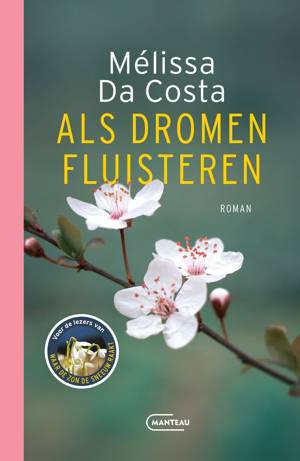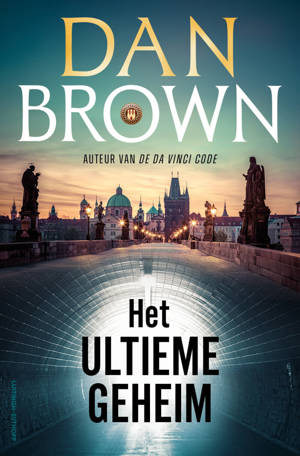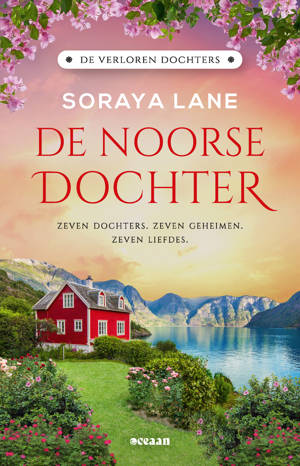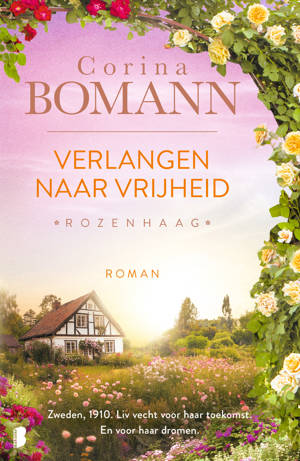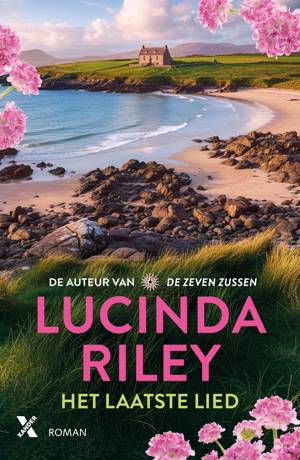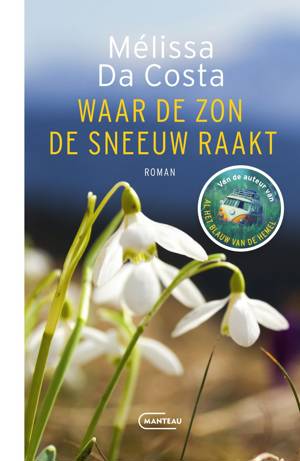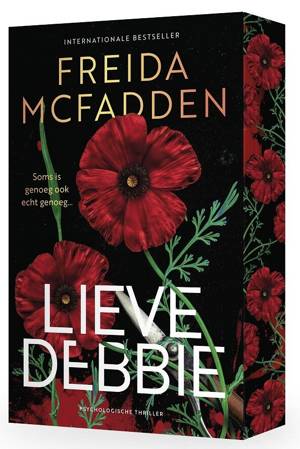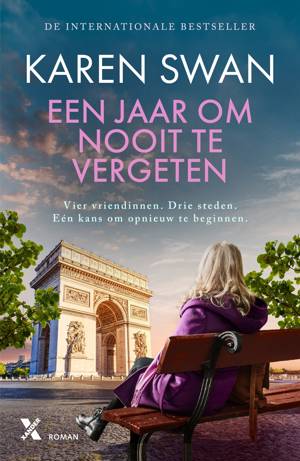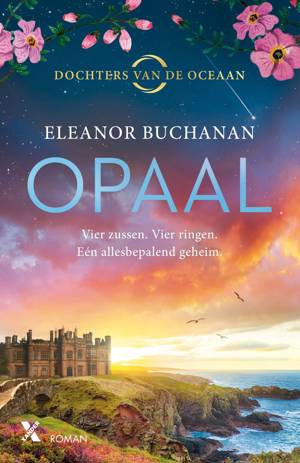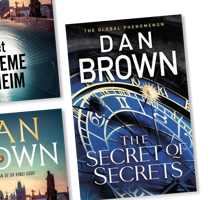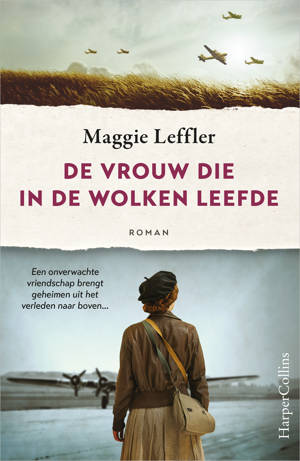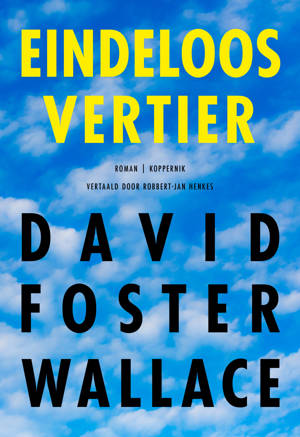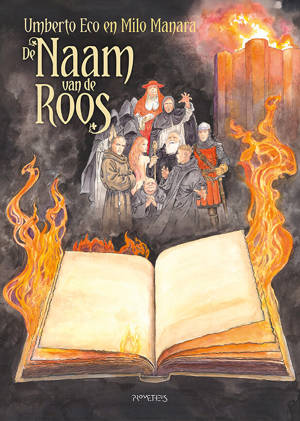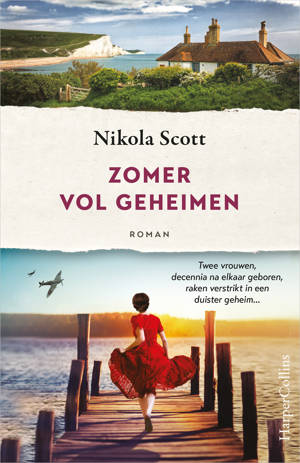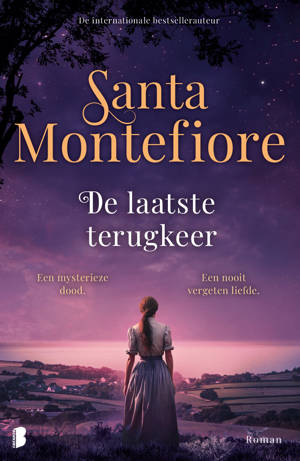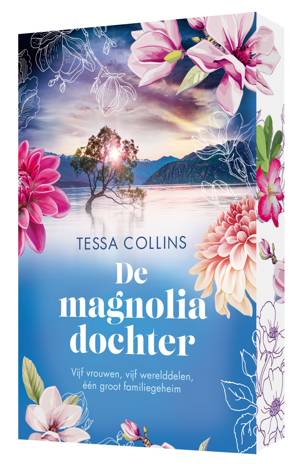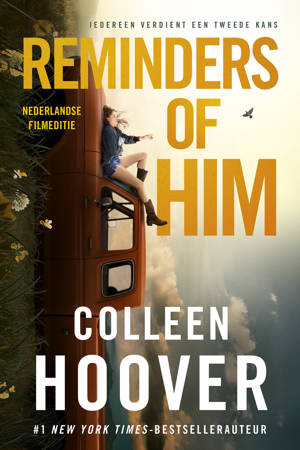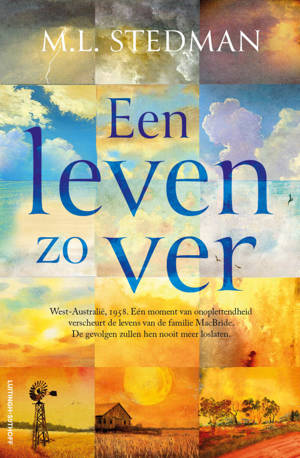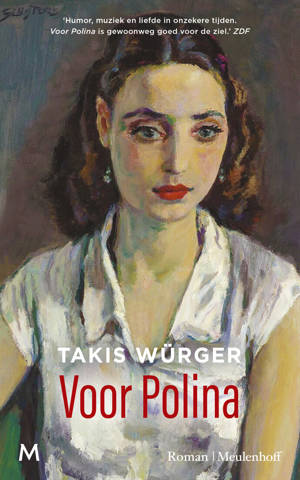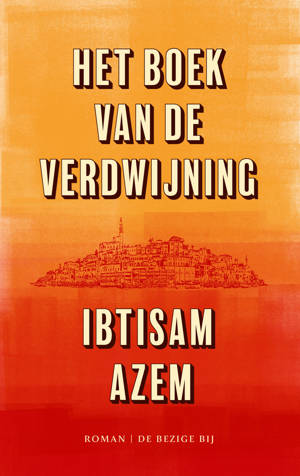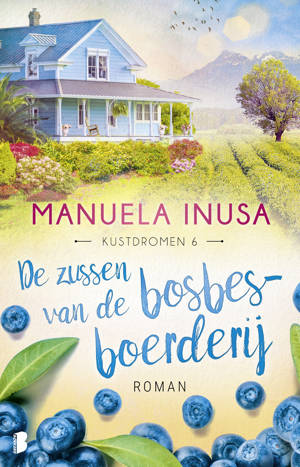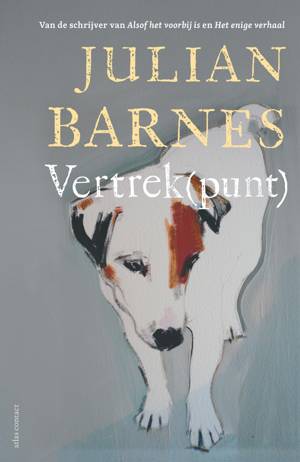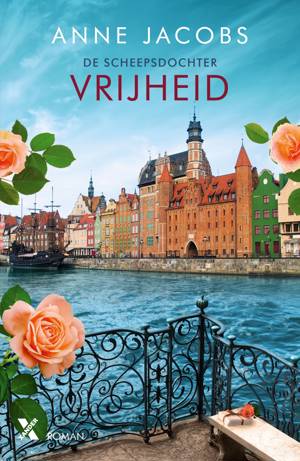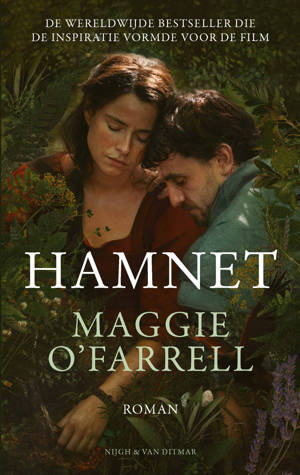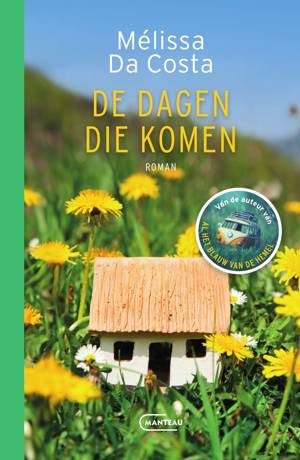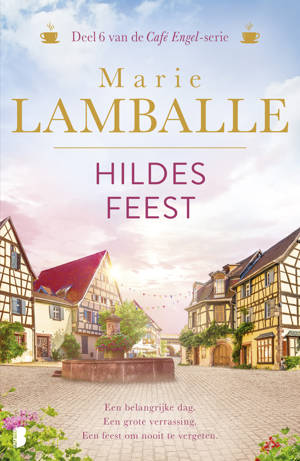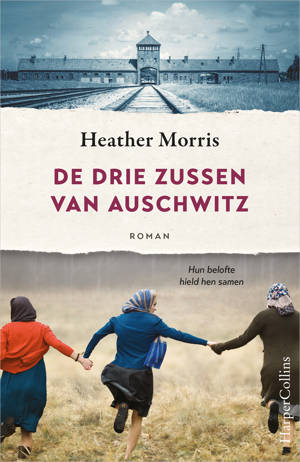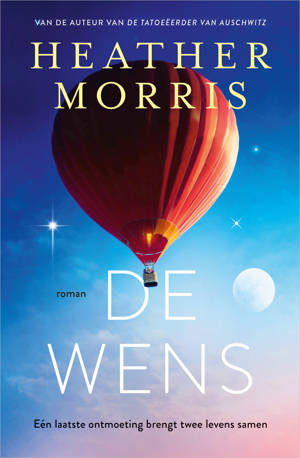
- Afhalen na 1 uur in een winkel met voorraad
- Gratis thuislevering in België vanaf € 30
- Ruim aanbod met 7 miljoen producten
- Afhalen na 1 uur in een winkel met voorraad
- Gratis thuislevering in België vanaf € 30
- Ruim aanbod met 7 miljoen producten
Zoeken
Onze literatuur & romans: Vertaalde literatuur
Wat je leest, maakt ons niet uit. Dat je leest des te meer. Dompel jezelf onder in een zee van literatuur en romans, waar elk blad een nieuw avontuur onthult. Verlies je in de diepgaande thema’s van onze literaire boeken, of laat je meeslepen door de nieuwste romans. Vind hieronder het boek waar je de rug helemaal krom van wil lezen, van literair tot populair.
Elk van onze romans kan je thuis laten leveren of afhalen in een Standaard Boekhandel bij jou in de buurt. Toch liever een e-book? Klik hier om naar alle e-books in deze categorie te gaan.
Vertaalde literatuur top 10
-
Als dromen fluisteren
Mélissa Da Costa
- Paperback | Nederlands
-
Het ultieme geheim
Dan Brown
- Paperback | Nederlands | Robert Langdon | nr. 6
-
De Noorse dochter
Soraya Lane
- Paperback | Nederlands | De verloren dochters | nr. 7
-
Verlangen naar vrijheid
Corina Bomann
- Paperback | Nederlands | De vrouwen van Rozenhaag-serie | nr. 2
-
Het laatste lied
Lucinda Riley
- Paperback | Nederlands
-
Waar de zon de sneeuw raakt
Mélissa Da Costa
- Paperback | Nederlands
-
Lieve Debbie
Freida McFadden
- Paperback | Nederlands
-
Een jaar om nooit te vergeten
Karen Swan
- Paperback | Nederlands | Cassie | nr. 1
-
Opaal
Eleanor Buchanan
- Paperback | Nederlands | Dochters van de oceaan
-
Al het blauw van de hemel
Mélissa Da Costa
- Paperback | Nederlands
Populaire keuzes
Trending
Alleen bij Standaard Boekhandel
Nieuw
-
Verlangen naar vrijheid
Corina Bomann
- Paperback | Nederlands | De vrouwen van Rozenhaag-serie | nr. 2
-
Een jaar om nooit te vergeten
Karen Swan
- Paperback | Nederlands | Cassie | nr. 1
-
De vrouw die in de wolken leefde
Maggie Leffler
- Paperback | Nederlands
-
Eindeloos vertier
David Foster Wallace
- Paperback | Nederlands
-
De naam van de roos
Umberto Eco, Milo Manara
- Paperback | Nederlands | De naam van de roos | nr. 2
-
Zomer vol geheimen
Nikola Scott
- Paperback | Nederlands
Pre-order nu
-
De laatste terugkeer
Santa Montefiore
- Paperback | Nederlands
-
De magnoliadochter
Tessa Collins
- Paperback | Nederlands | De bloemendochters | nr. 4
-
Reminders of him
Colleen Hoover
- Paperback | Nederlands
-
Een leven zo ver
M.L. Stedman
- Paperback | Nederlands
-
Voor Polina
Takis Würger
- Hardcover | Nederlands
-
Het boek van de verdwijning
Ibtisam Azem
- Paperback | Nederlands
Vertaalde literatuur
-
Als dromen fluisteren
Mélissa Da Costa
- Paperback | Nederlands
- Al vijf jaar is Ambre niet meer teruggekeerd naar Arvieux. Een onverwacht telefoontje van haar vriendin Rosalie brengt daar verandering in. Ook Anton ... Lees meer
€ 25,99Levering 1 à 2 werkdagen Afhalen in de winkel na 1 u.€ 25,99Levering 1 à 2 werkdagen Afhalen in de winkel na 1 u. -
Het ultieme geheim
Dan Brown
- Paperback | Nederlands | Robert Langdon | nr. 6
- De nieuwe thriller van de wereldwijde bestsellerauteur Dan Brown. Zijn meest ingenieuze thriller tot nu toe – een razendsnel en uitdagend meesterwerk ... Lees meer
€ 29,99Levering 1 à 2 werkdagen Afhalen in de winkel na 1 u.€ 29,99Levering 1 à 2 werkdagen Afhalen in de winkel na 1 u. -
De Noorse dochter
Soraya Lane
- Paperback | Nederlands | De verloren dochters | nr. 7
- ‘Deze serie is net zo verslavend als De zeven zussen.’ Vriendin Londen, heden. Wanneer ze een geheimzinnig kistje ontvangt dat bestemd is voor haar ge... Lees meer
€ 19,99Levering 1 à 2 werkdagen Afhalen in de winkel na 1 u.€ 19,99Levering 1 à 2 werkdagen Afhalen in de winkel na 1 u. -
Verlangen naar vrijheid
Corina Bomann
- Paperback | Nederlands | De vrouwen van Rozenhaag-serie | nr. 2
- Ruim 25.000 exemplaren verkocht van het eerste deel, Dromen van een nieuw begin Karlskrona, Zweden, 1910. Dankzij hun vriendschap en moed hebben Marle... Lees meer
€ 22,99Levering 2 à 3 werkdagen Afhalen in de winkel na 1 u.€ 22,99Levering 2 à 3 werkdagen Afhalen in de winkel na 1 u. -
Het laatste lied
Lucinda Riley
- Paperback | Nederlands
- In Het laatste lied van bestsellerauteur Lucinda Riley wordt een muzikale droom verstoord door roem en geheimen. Een meeslepende roman over familie, l... Lees meer
€ 24,99Levering 2 à 3 werkdagen Afhalen in de winkel na 1 u.€ 24,99Levering 2 à 3 werkdagen Afhalen in de winkel na 1 u. -
Waar de zon de sneeuw raakt
Mélissa Da Costa
- Paperback | Nederlands
- Philippe is veertig, commercieel directeur, getrouwd en vader van twee kinderen. Ambre is twintig, heeft niets en niemand. Behalve hem.Wanneer ze, ove... Lees meer
€ 25,99Levering 1 à 2 werkdagen Afhalen in de winkel na 1 u.€ 25,99Levering 1 à 2 werkdagen Afhalen in de winkel na 1 u. -
Lieve Debbie
Freida McFadden
- Paperback | Nederlands
- Lees nu dé nieuwe McFadden! Ben jij al verslaafd? Een rebelse thriller over wat er gebeurt als vrouwen eindelijk besluiten het recht in eigen handen t... Lees meer
€ 22,99Levering 1 à 2 werkdagen Afhalen in de winkel na 1 u.€ 22,99Levering 1 à 2 werkdagen Afhalen in de winkel na 1 u. -
Een jaar om nooit te vergeten
Karen Swan
- Paperback | Nederlands | Cassie | nr. 1
- In Een jaar om nooit te vergeten van Karen Swan reist Cassie naar New York, Parijs en Londen om na een mislukt huwelijk haar leven én zichzelf opnieuw... Lees meer
€ 22,99Levering 2 à 3 werkdagen Afhalen in de winkel na 1 u.€ 22,99Levering 2 à 3 werkdagen Afhalen in de winkel na 1 u. -
Opaal
Eleanor Buchanan
- Paperback | Nederlands | Dochters van de oceaan
- In Opaal , het eerste deel van de gloednieuwe serie Dochters van de oceaan van Eleanor Buchanan, begint het verhaal in Schotland in 1931. Wanneer succ... Lees meer
€ 23,99Levering 1 à 2 werkdagen Afhalen in de winkel na 1 u.€ 23,99Levering 1 à 2 werkdagen Afhalen in de winkel na 1 u. -
Al het blauw van de hemel
Mélissa Da Costa
- Paperback | Nederlands
- Nadat bij Emile jong-alzheimer werd vastgesteld, besluit hij het ziekenhuis en het medeleven van zijn familie en vrienden te ontvluchten. Stiekem koop... Lees meer
€ 24,99Levering 1 à 2 werkdagen Afhalen in de winkel na 1 u.€ 24,99Levering 1 à 2 werkdagen Afhalen in de winkel na 1 u. -
De zussen van de bosbessenboerderij
Manuela Inusa
- Paperback | Nederlands | Kustdromen | nr. 6
- Het slotdeel van de verslavende Kustdromen -serie Drie zussen, een bosbessenboerderij en een oud geheim dat eindelijk onthuld gaat worden… Na een vers... Lees meer
€ 18,99Levering 2 à 3 werkdagen Afhalen in de winkel na 1 u.€ 18,99Levering 2 à 3 werkdagen Afhalen in de winkel na 1 u. -
Vertrek(punt)
Julian Barnes
- Hardcover | Nederlands
- Vertrek(punt) is het aangekondigde slotakkoord van een rijk, veelzijdig oeuvre, een boek over oude vrienden en de naderende dood, over herinnering en ... Lees meer
€ 22,99Levering 2 à 3 werkdagen Afhalen in de winkel na 1 u.€ 22,99Levering 2 à 3 werkdagen Afhalen in de winkel na 1 u. -
Vrijheid
Anne Jacobs
- Paperback | Nederlands | De scheepsdochter | nr. 3
- Na de dood van haar man moet Johanna in Vrijheid , het derde deel van De scheepsdochter -serie van Anne Jacobs, vechten om haar plaats op de scheepswe... Lees meer
€ 22,99Levering 2 à 3 werkdagen Afhalen in de winkel na 1 u.€ 22,99Levering 2 à 3 werkdagen Afhalen in de winkel na 1 u. -
Hamnet
Maggie O'Farrell
- Paperback | Nederlands
- Nu verfilmd door Academy Award®-winnaar Chloé Zhao, met Jessie Buckley en Paul Mescal in de hoofdrol Op een zomerdag in 1596 gaat Judith, een jong mei... Lees meer
€ 15,00Levering 2 à 3 werkdagen Afhalen in de winkel na 1 u.€ 15,00Levering 2 à 3 werkdagen Afhalen in de winkel na 1 u. -
De dagen die komen
Mélissa Da Costa
- Paperback | Nederlands
- Amande had nooit gedacht dat pijn zo intens kon zijn. Ze trekt zich terug in een afgelegen huis in Auvergne om haar verdriet ten volle te beleven.De d... Lees meer
€ 22,99Levering 1 à 2 werkdagen Afhalen in de winkel na 1 u.€ 22,99Levering 1 à 2 werkdagen Afhalen in de winkel na 1 u. -
De vrouw die in de wolken leefde
Maggie Leffler
- Paperback | Nederlands
- De vrouw die in de wolken leefde van Maggie Leffler is een ontroerende roman over familie, dromen en een onverwachte vriendschap. Mary Browning is zev... Lees meer
€ 15,99Levering 1 à 2 werkdagen Afhalen in de winkel na 1 u.€ 15,99Levering 1 à 2 werkdagen Afhalen in de winkel na 1 u. -
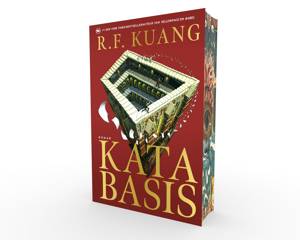
- Gratis sokken
- Exclusief
Katabasis
R. F. Kuang
- Hardcover | Nederlands
- De nieuwe roman van literaire sensatie R.F. Kuang Lees meer
€ 9,99Afhalen in de winkel na 1 u.€ 9,99Afhalen in de winkel na 1 u. -
Eindeloos vertier
David Foster Wallace
- Paperback | Nederlands
- Eindeloos vertier, het kolossale, tragikomische meesterwerk van David Foster Wallace, speelt zich af in een kliniek voor drugsverslaafden en op een te... Lees meer
€ 50,00Levering 2 à 3 werkdagen Afhalen in de winkel na 1 u.€ 50,00Levering 2 à 3 werkdagen Afhalen in de winkel na 1 u. -
De naam van de roos
Umberto Eco, Milo Manara
- Paperback | Nederlands | De naam van de roos | nr. 2
- Ruim veertig jaar na de verschijning van De naam van de roos van Umberto Eco, een van de succesvolste romans aller tijden, verscheen in 2023 het eerst... Lees meer
€ 24,99Levering 1 à 2 werkdagen Afhalen in de winkel na 1 u.€ 24,99Levering 1 à 2 werkdagen Afhalen in de winkel na 1 u. -
Zomer vol geheimen
Nikola Scott
- Paperback | Nederlands
- Zomer vol geheimen van Nikola Scott is een mooie en spannende roman over de kracht van liefde die zowel troostend als vernietigend kan zijn. Augustus ... Lees meer
€ 15,99Levering 2 à 3 werkdagen Afhalen in de winkel na 1 u.€ 15,99Levering 2 à 3 werkdagen Afhalen in de winkel na 1 u. -
Dochters van de Dordogne
Dinah Jefferies
- Paperback | Nederlands
- Dochters van de Dordogne is het eerste deel in een grandioze nieuwe trilogie van bestsellerauteur Dinah Jefferies. Frankrijk, 1944. In het dal van de ... Lees meer
€ 15,99Levering 1 à 2 werkdagen Afhalen in de winkel na 1 u.€ 15,99Levering 1 à 2 werkdagen Afhalen in de winkel na 1 u. -
Hildes feest
Marie Lamballe
- Paperback | Nederlands | Café Engel-serie | nr. 6
- Deel 6 van de Café Engel-serie Wiesbaden, 1968. Er wordt ingebroken bij Café Engel. De familie Koch is diep geschokt. Maar als Hilde bij het opruimen ... Lees meer
€ 22,99Levering 2 à 3 werkdagen Afhalen in de winkel na 1 u.€ 22,99Levering 2 à 3 werkdagen Afhalen in de winkel na 1 u. -
De drie zussen van Auschwitz
Heather Morris
- Paperback | Nederlands
- De drie zussen van Auschwitz van Heather Morris is een adembenemende roman over familie, kracht en hoop. Toen ze klein waren, beloofden de Joodse zusj... Lees meer
€ 15,99Levering 1 à 2 werkdagen Afhalen in de winkel na 1 u.€ 15,99Levering 1 à 2 werkdagen Afhalen in de winkel na 1 u. -
De wens
Heather Morris
- Paperback | Nederlands
- De wens van bestsellerauteur Heather Morris is een emotionele roman die je hart breekt en ook weer lijmt. Jesse is 15. Ze houdt van haar vrienden, haa... Lees meer
€ 22,99Levering 2 à 3 werkdagen Afhalen in de winkel na 1 u.€ 22,99Levering 2 à 3 werkdagen Afhalen in de winkel na 1 u.






